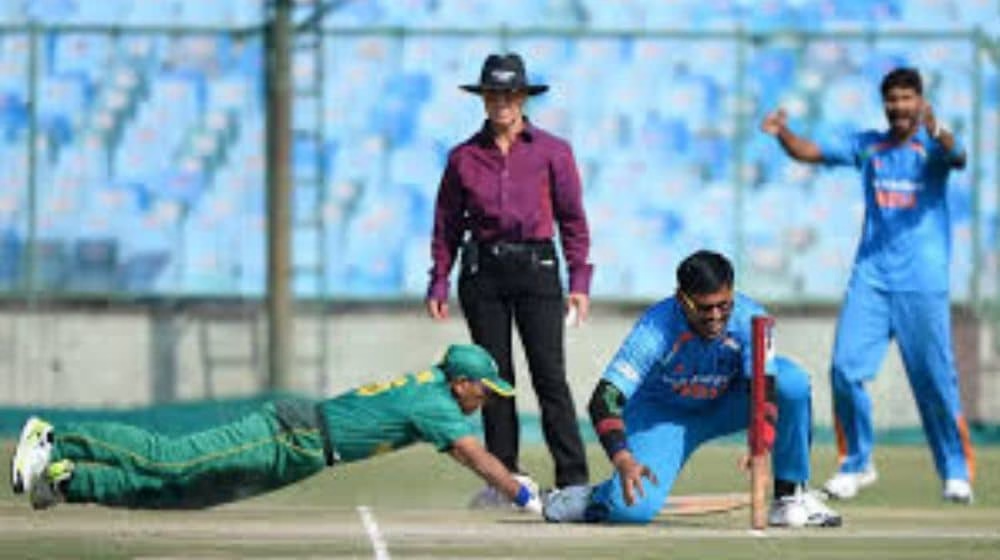The Pakistan vs India Asia Cup Final delivered electrifying moments as Pakistan’s bowlers dismantled India’s batting lineup while defending a modest total of 146 runs. The contest, played under immense pressure in Dubai, once again highlighted the intensity of the historic rivalry. Pakistan’s disciplined bowling attack reduced India to 78 runs in just 13 overs, leaving fans stunned and reigniting discussions about Pakistan’s dominance with the ball.
Pakistan vs India Asia Cup Final: A Low-Scoring Thriller
The Pakistan vs India Asia Cup Final was expected to be a high-scoring battle. However, Pakistan’s bowlers ensured the game tilted in their favor from the very beginning. Despite posting only 146 runs, Pakistan made an exceptional start with the ball, unsettling India’s top order. The pressure was evident as India struggled to find momentum in the powerplay, registering just 36 runs in the first six overs — their lowest powerplay score of the tournament and third-lowest overall against Pakistan in Asia Cup history.
Shaheen Afridi’s Impactful Spell
Shaheen Shah Afridi, once again the standout bowler in the Pakistan vs India Asia Cup Final, ignited celebrations with his fiery pace and aggressive body language. His dismissal of Shubman Gill was a turning point. Gill, who had managed just 12 runs off 10 balls, succumbed to Afridi’s precision and swing. Afridi’s trademark aggressive celebration, running toward Haris Rauf in ship-like style, captured the spirit of Pakistan’s fighting approach in the final.
Haris Rauf and Faheem Ashraf Add to India’s Woes
Haris Rauf’s sharp fielding and Faheem Ashraf’s breakthrough in the fourth over further tilted the balance in Pakistan’s favor during the Pakistan vs India Asia Cup Final. Faheem dismissed Gill with the help of Rauf’s exceptional catch, putting India under pressure early. With four wickets falling inside 13 overs, India’s chase seemed to be slipping away rapidly.
India’s Batting Struggles in the Asia Cup Final
In the Pakistan vs India Asia Cup Final, India’s usually strong batting order failed to deliver. With only 78 runs scored in 13 overs and four crucial wickets lost, the Indian side looked vulnerable against Pakistan’s relentless bowling. India’s inability to rotate the strike or hit boundaries in the middle overs created mounting pressure, which Pakistan’s bowlers capitalized on effectively.
Pakistan’s Strategy Pays Off
The Pakistan vs India Asia Cup Final showcased Pakistan’s tactical brilliance. Knowing that their batting total of 146 was below par, the team relied on early wickets and disciplined bowling to choke India’s scoring opportunities. Pakistan’s field placements, bowling variations, and attacking mindset proved decisive in restricting India’s progress. At the end of five overs, Pakistan’s winning chances had already surged to 65%, reflecting their control over the game.
Historical Context of Pakistan vs India in Asia Cups
The Pakistan vs India Asia Cup Final adds another thrilling chapter to the storied rivalry. Matches between these two cricketing giants are always more than just games; they are battles of pride and national passion. Pakistan’s ability to defend a modest score underlines their growing confidence in crunch situations. This performance will be remembered alongside other historic victories where Pakistan’s bowlers outshone India’s batting firepower.
Key Statistics from the Asia Cup Final
- Pakistan set India a target of 146 runs.
- India managed only 36 runs in the powerplay, their lowest in this Asia Cup.
- India collapsed to 78/4 in 13 overs, showcasing Pakistan’s dominance.
- Shubman Gill scored 12 runs off 10 balls, falling to Afridi.
- At the end of 5 overs, Pakistan’s win probability rose to 65%.
These statistics highlight how Pakistan’s bowlers turned the tide of the Pakistan vs India Asia Cup Final with disciplined line and length.
Pakistan’s Bowling Dominance Shines
The Pakistan vs India Asia Cup Final once again highlighted the importance of bowling in modern cricket. Despite defending just 146 runs, Pakistan’s bowlers showcased skill, aggression, and tactical brilliance to put India on the back foot. Performances from Shaheen Afridi, Haris Rauf, and Faheem Ashraf ensured Pakistan’s dominance in a match that will be remembered for its intensity and drama.
With this victory, Pakistan not only reaffirmed their credentials as a strong cricketing nation but also reminded the world why the Pakistan vs India Asia Cup Final remains one of the most anticipated fixtures in global cricket.



